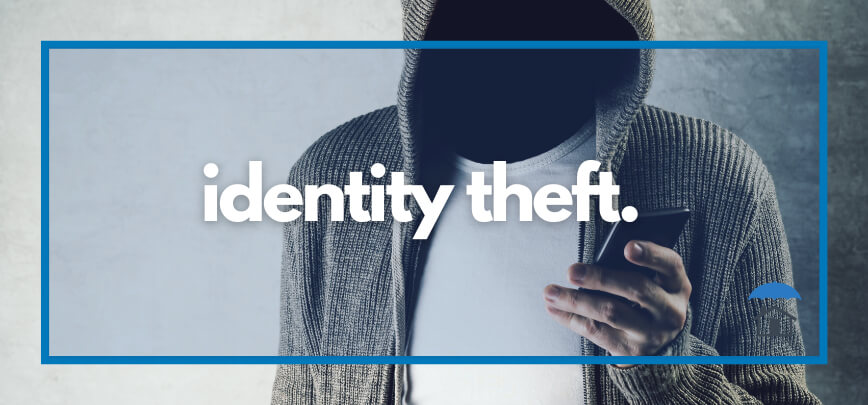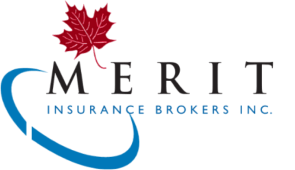
It’s not you, it’s me. Tips On How To Protect Yourself Against Identity Theft
With the rise in technology and sophistication from criminals, identity theft is one of the fastest-growing crimes today. Identity theft is the unauthorized use of your information by third parties and involves the collection and use of personal information such as your name, date of birth, address, social insurance number (SIN), and other details to commit fraud. In Canada, it is estimated that identity theft and credit card fraud cost Canadians more than $1 million a day.
At Merit Insurance, we aim to protect your assets, identity, and your wallet. We have compiled our top tips on how to protect yourself from identity fraud personally and for your business.
Strategies to Protect Your Personal Credit Card Information
- Always keep your credit card in sight. If your waiter or salesperson needs to walk away to run your card, go with them to make sure you are not a victim of credit card skimming. This common practice of identity thieves lifts information from the magnetic strip on the back of your credit card to use later to make purchases at your expense.
- Protect your computer from malware while shopping online. Those new pair of jeans you bought online might be costing you more than just shipping and handling. Hackers can create malicious software designed to infiltrate your computer and intercept passwords or credit card information you enter while shopping online. Protect your computer by installing the latest anti-virus, anti-spyware, anti-adware programs, and firewalls.
- Protect your PIN. Do not share your PIN with anyone and shield the keypad whenever you enter it in a public space. Identity thieves use clever tactics to steal PINs including spy cameras.
- Monitor your credit statements regularly. At least once every six months, check your credit through Equifax Canada or TransUnion Canada to make sure there is no suspicious activity. Also, carefully review your bank and credit card statements and report suspicious charges immediately. Often thieves will purchase something small to test out the card to determine if the charge goes unnoticed. But by being diligent with your bills, you can stop any suspicious activity right away.
Preventing Fraud in Your Business
It seems like every week there’s a new report of a company that has been hacked, releasing sensitive information such as consumer data and/or credit card numbers. Big companies are frequent targets because of the sheer number of accounts that are available in their databases. In some cases, this information is sold, possibly even several times over.
A common ruse for targeting individuals is a technique called phishing. Phishing is a term used for emails, text messages and websites that are fabricated by criminals to look like they come from a trusted source. They are used to collect personal, financial, and sensitive information. Large well-known companies send an email encouraging you to log on and perhaps update your billing information. If well-made, the page where you arrive after clicking the email link will look exactly as you would expect, complete with a familiar logo and brand colours. Just that quickly, someone could have your name, address, password, and credit card information.
Another scam disguised via email is the use of attachments. Most large businesses don’t send attachments to customers by email. Regard attachments with suspicion. If an email asks you to click a link to “update your account details”, you are safer going directly to the corporate website and checking the status of your account there instead of clicking the email link.
It is easy to fall victim to identity theft in 2023. To protect yourself, call a Merit Insurance Broker to discuss the coverage options and build a plan that is right for you. As part of our IDENTITY FRAUD EXPENSE COVERAGE, eligible costs and expenses may include:
- your lost earnings for time off work that must be taken to complete fraud affidavits, meet with law enforcement or credit agencies, merchants, or legal counsel;
- loan application fees for reapplying for loans where the original application was
rejected because of incorrect credit information; - costs and expenses associated with restoring your identity with law enforcement agencies,
financial institutions or similar credit grantors, and credit agencies including: a) notarizing affidavits or similar documents;
b) sending certified and registered mail;
c) additional charges for phone calls or texts; - The cost of reasonable fees from the use of a professional fraud mitigation or restoration service with our prior notice and approval;
- reasonable legal fees incurred, with our prior notice and approval for:
a) your defence against any legal action by businesses or their collection agencies;
b) the removal of any criminal or civil judgments wrongly entered against you;
c) any challenge to the information in your consumer credit report, which is required
to restore your identifying information.
If you find yourself in this situation, your first call should be to the Canadian Anti-Fraud Centre at 1-888-495-8501 to report it. Your Merit Broker is a phone call away and can help protect your business BEFORE an identity theft happens with the right coverage.



